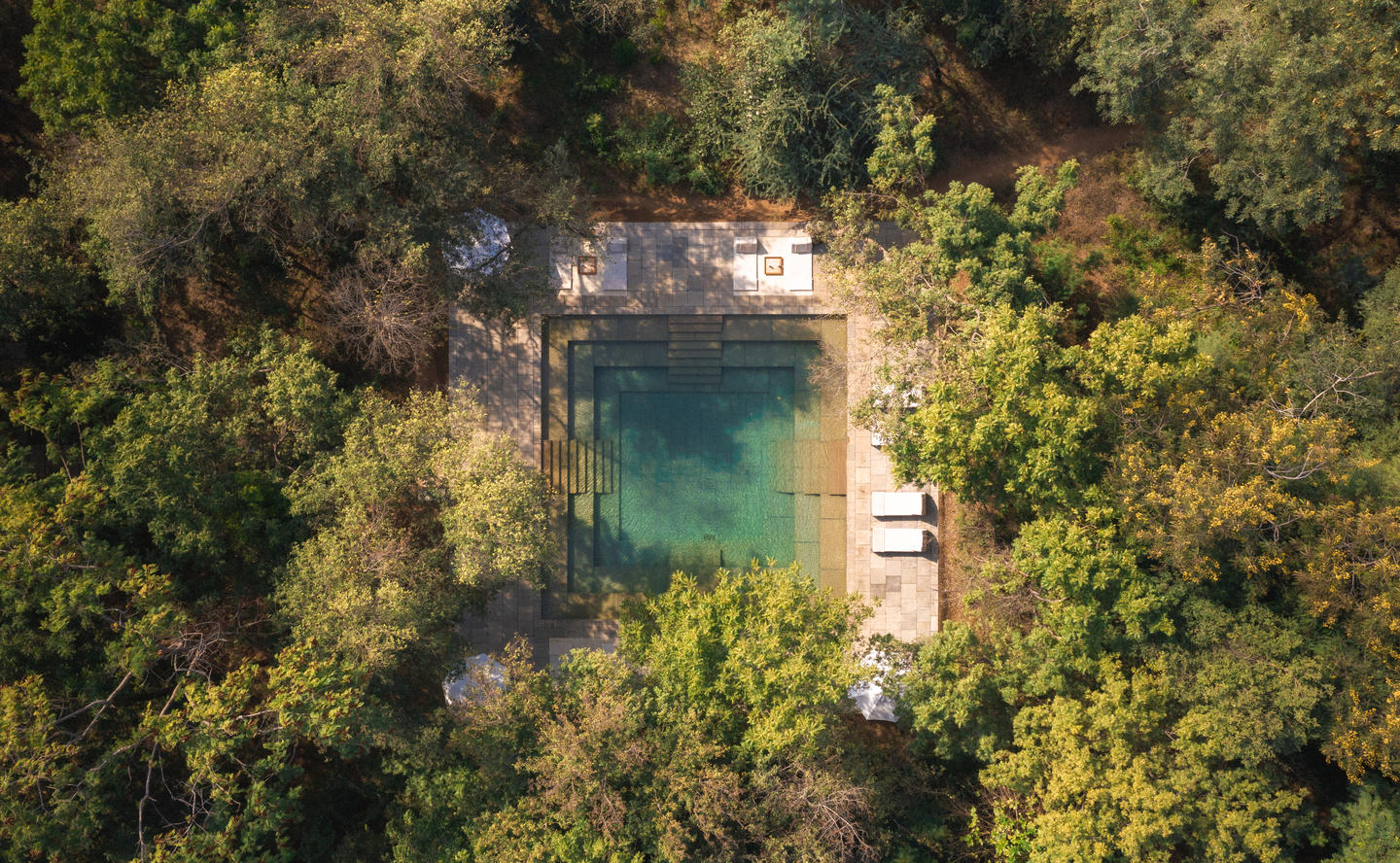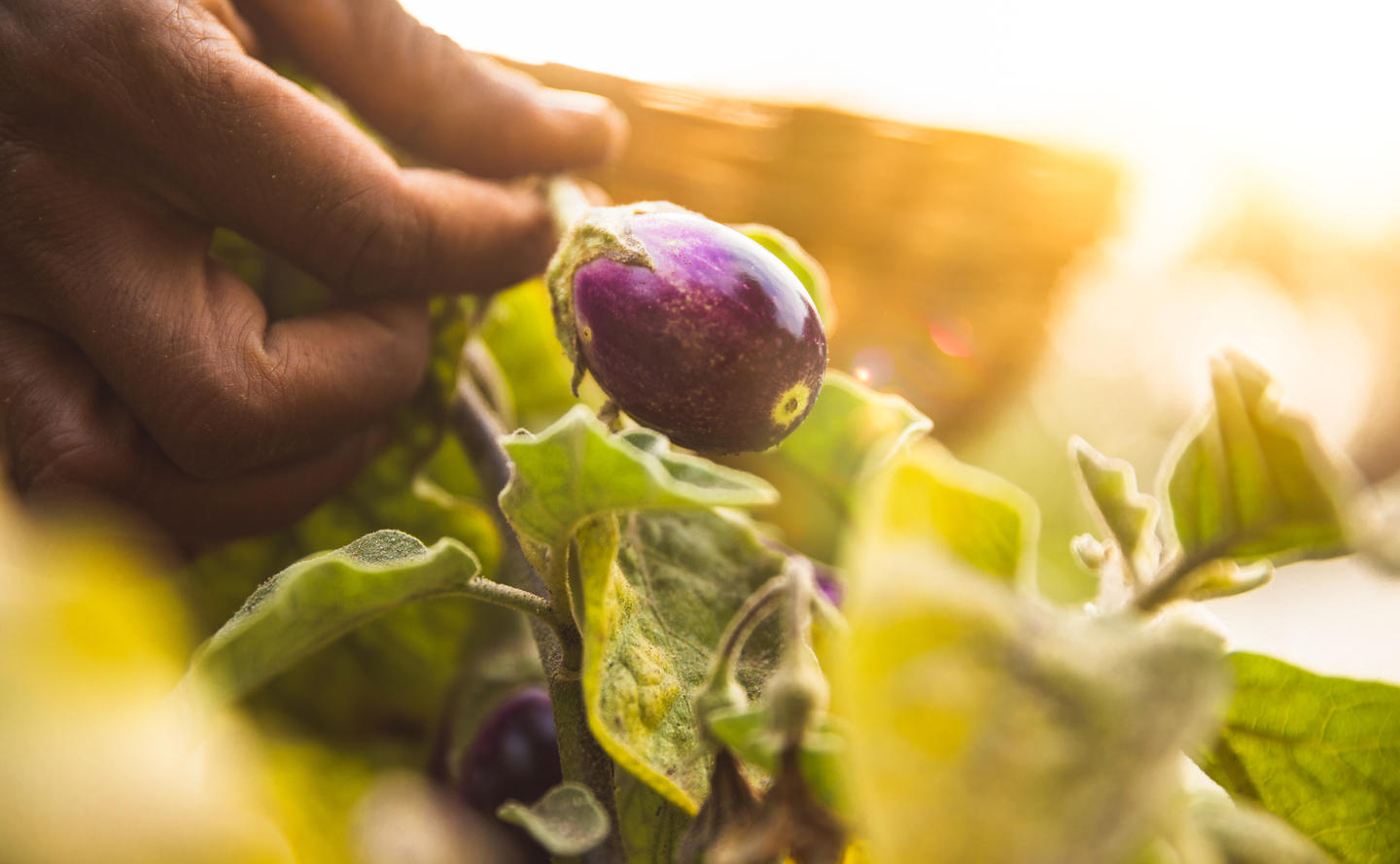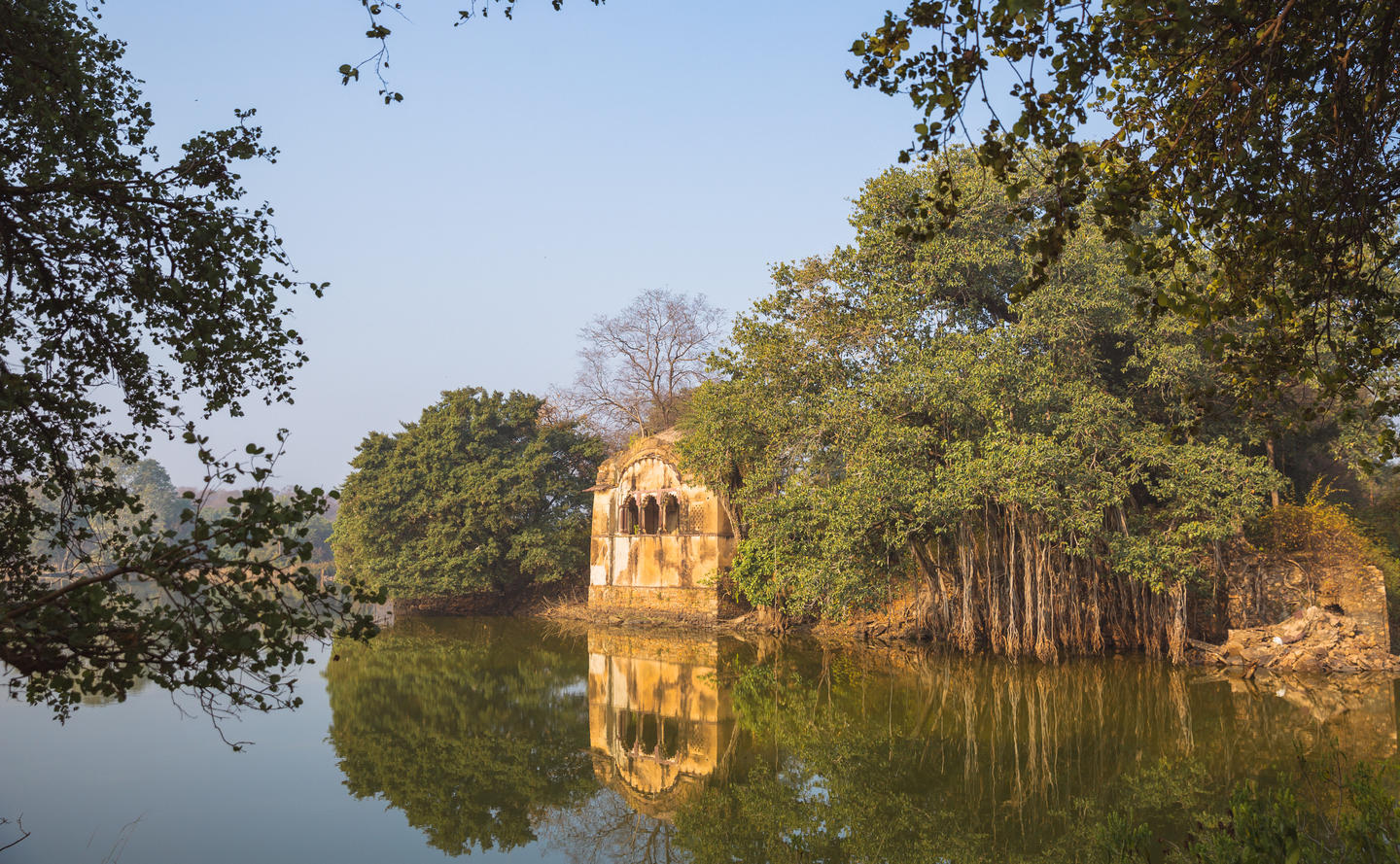Lowering our 'foodprint'
Food production, storage, transport, cooking and waste all result in greenhouse gas emissions, and Aman is proud to be constantly reducing the brand’s ‘foodprint’ in every way possible. To do-so, Aman-i-Khás now operates a four-acre farm, where many of the vegetables served in the restaurant are grown and is also working to reduce food waste with several innovative initiatives.
To reduce meat waste specifically, the camp now uses meat leftovers to feed on-site tilapia and catfish. The leftover bones from the bottom of the fish tank are then ground to create a powder rich in calcium, an important source of nutrition for the camp’s soil type that can help to enrich and increase harvest. Further innovations include using mixing charcoal ask together with starchy rice water, to create coal briquettes for future use.
Sourcing ghee ethically
In traditional families, women in the Rajasthan region stay at home to raise their children, never afforded the opportunity to earn their own living. To encourage socio-economic empowerment, Aman-i-Khás recently began a ghee initiative, sourcing this essential ingredient directly from farms run by local women. The clarified butter staple is now purchased by the camp directly from mothers and grandmothers in the region, some of whom also now work as part of the resort’s culinary team, improving gender representation and community spirit among Aman-i-Khás’ workforce, and sharing their delicious recipes with Aman guests.






